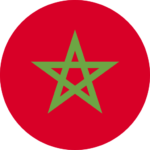
Curating experts insights to tackle Covid-19 with Smarter Crowdsourcing
A new method to attract diverse ideas from global experts and rapidly develop actionable proposals.
Read this if you
Case study abstract
In 2019 and 2020, a diverse group of 35 men and women were given a daunting task: Create a new model of national development for the nation of Morocco, inspired by the needs and ideas of the Moroccan people themselves.
Over 14 months, the Commission spéciale pour le Modèle de Développement (CSMD) created an unprecedented national consultation, combining a range of field visits, workshops, listening sessions, townhall-style “citizen encounters,” and an interactive online platform.
This case study focuses on a method of guided storytelling used as the basis of the first séance d’écoute on the UM6P campus in Ben Guérir, Morocco, in December 2019. With a new model of development now validated by the head of state and taken up by a newly elected government, the next step in defining the “Moroccan model of collective intelligence” is underway.
Do’s and Don’ts
1. Leaders must make a compelling case for change.
Citizens will participate only if the leaders who call for their participation have a baseline level of credibility and define a need that is perceived as urgent by the citizens themselves. In a series of public addresses leading up to the creation of the CSMD, King Mohammed VI defined a clear narrative for the nation as to why current models of governance were insufficient and why a participa-tory approach was needed to set a new direction. A certain level of skepticism will always be warranted, but without a strong narrative for change, citizens will not be as likely to give new approaches a chance.
2. Public commitments at the start will set the tone.
Chakib Benmoussa, as head of the CSMD, realized that he could not guarantee specific policy impacts that would result from the input gathered by the Commission. Such a commitment would undoubt-edly have strengthened the motivation of citizens to participate, and the robustness of the policy outcomes. But critical elements of the process were under the CSMD’s con-trol: transparency, unfiltered input, a listening posture, and proximity to all of Morocco’s territories. These commitments were made strongly at the beginning and reiterated during each of the CSMD’s activities, lending coherence and credibility to the process overall.
3. Guided storytelling can bring tacit knowledge to the surface.
For the pilot séance d’écoute in Ben Guérir, the organizers made a calculated bet that by disrupting the expectations of participants – visibly reversing the power dynamics between young people and eminent guests – a new body of publicly useful information could emerge. The power of narrative methods in surfacing tacit knowledge gives a powerful lever to public authorities that seek to explore the complexities of a public problem. And letting citizens share their views in the language of personal experience, in a direct and unfiltered dialogue with public officials, may be an essential way to rebuild trust as well.
4. To reach diverse audiences, open multiple channels and see what works.
Taking into account Morocco’s digital and territorial divides, the CSMD opened a wide range of in-person and online channels for citizen input. This variety posed an enormous organizational challenge for CSMD staff, but ultimately helped them adjust quickly during the onset of COVID-19. Regular self-analysis and objective measures are critical: monthly plenary sessions and weekly reviews within the CSMD staff helped identify gaps in partici-pation patterns and plan new workshops or calls for contribution to fill those gaps.
5. Government and academia can complement one another’s strengths.
In this case, real-world application of collective intelligence science – from concepts like cognitive diver-sity to methods like guided storytelling – was made possible by an open-minded government partner hungry for good ideas. To make this work, however, researchers should also keep an open mind and be ready for some promising ideas to prove unfeasible given time and budget constraints. Finally, respect for the autonomy of scientific research and analysis was a critical factor in the success of this partnership, and offers a good precedent for such partnerships to deepen in the future.
Inspiring stories, key principles, practical do’s and don’ts
In open acess thanks to the Porticus Foundation
Quick facts

Methods
Policy making steps
Contributors
Related resources

A new method to attract diverse ideas from global experts and rapidly develop actionable proposals.

How Slagelse used AI to gather citizen insights on health and well-being to craft local policy

Dreaming, remembering, scaling and innovating boldly to spread good ideas
For policy makers, researchers, activists and practitioners of collective intelligence

Every 2 weeks, you’ll get: